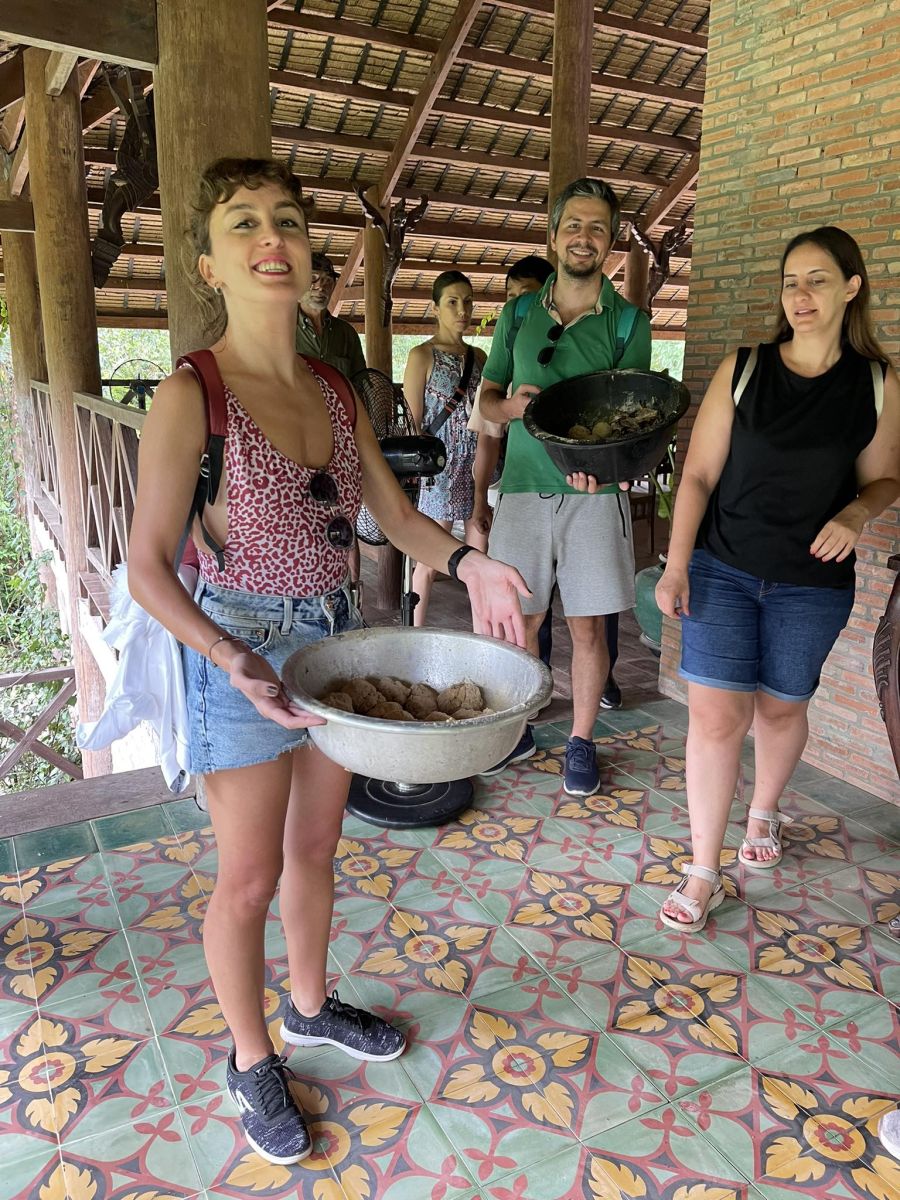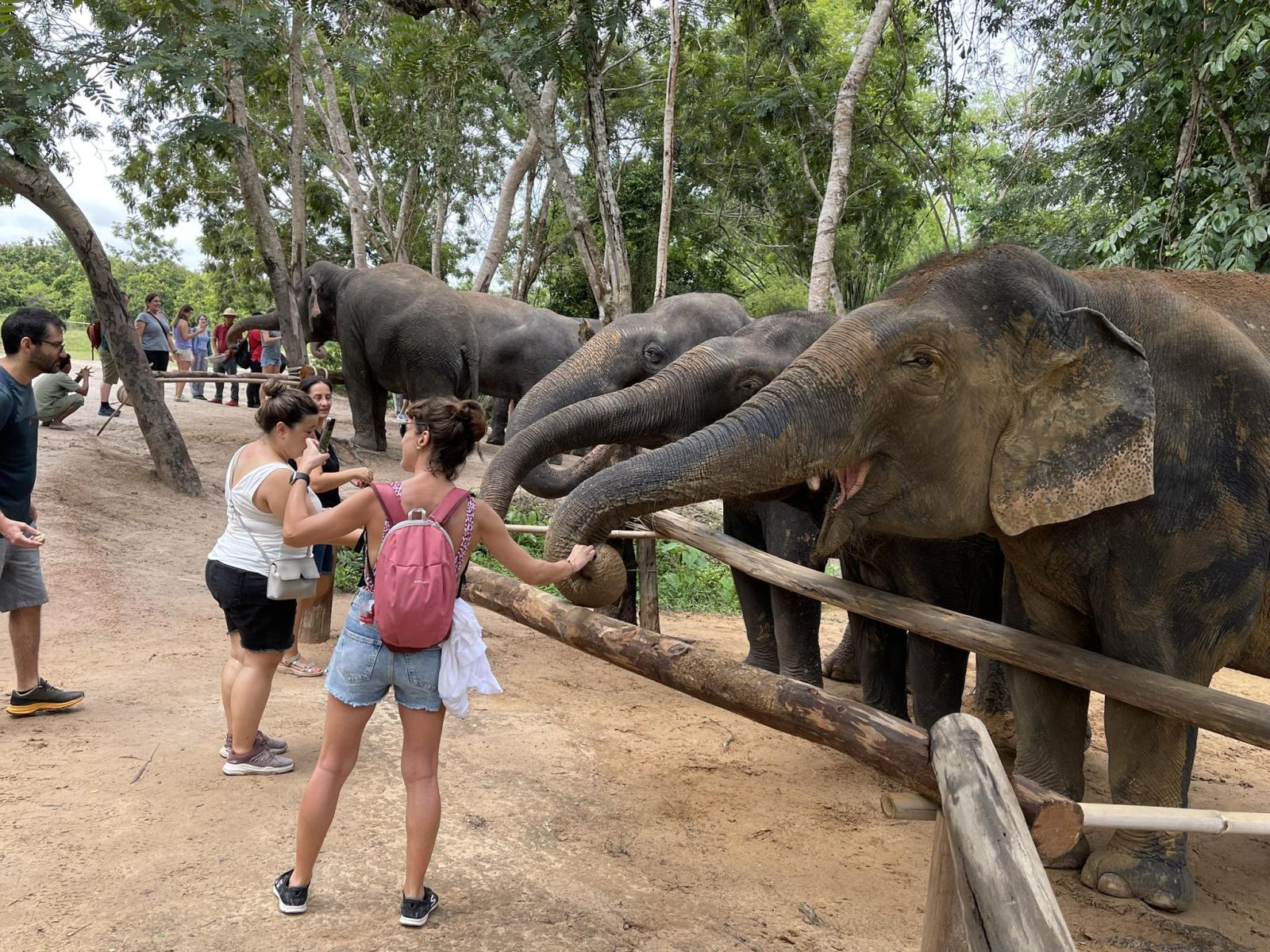Threeland Travel build this policy to require an understanding of animals and their needs, an ability to assess requirement and a recognition that some activities with animals may no longer be acceptable.
TABLE OF CONTENTS
1
I.WHAT IS ANIMAL WELFARE?
2
II.ANIMAL WELFARE POLICY
1. Mitigating associated risk to animals
2. Best practices on Animal Welfare
3. Enhance staff knowledge and engagement
4. Effective communication on animal tourism
ANIMAL WELLFARE POLICY
Guidance by Travelife
Animals are a popular part of many holiday experiences. From the viewing of wildlife in the wild, to visiting captive animal facilities, such as zoos and sanctuaries, to animals used to carry people or loads. Customers may enjoy the chance to view or interact with animals in destinations and when managed appropriately, animals can enhance the holiday experience.
At times the tourism industry has been associated with practices which are deemed exploitative or which compromise the welfare of the animals involved. In fact, a ComRes public poll in 2017 indicated 71% of travellers surveyed said they were more likely to buy holidays from companies that care for animals.
Understanding how, and by how much, tourism practices can impact on animals is key to identifying and managing the associated risk of animal-based product. Threeland Travel build this policy to require an understanding of animals and their needs, an ability to assess requirement and a recognition that some activities with animals may no longer be acceptable.
I.WHAT IS ANIMAL WELFARE?
Animal welfare refers to the physical and mental state of an animal and its ability to cope with its environment. An animal is in a good state of welfare if it is healthy, comfortable, wellnourished, safe, able to express natural behavior and if it is not suffering from unpleasant states such as pain, fear and distress.
The environment is appropriate if it allows the animal to satisfy its welfare needs. Whereby there is sufficient resource and requirement for an animal to fulfil is range of functional systems (such as controlling body temperature, its nutritional state, social interactions, etc.). Together, these functional systems allow the individual to control its interactions with its environment and hence to keep each aspect of its state within a tolerable range (Broom 2008).
A state of poor welfare is when an animal is unable to cope, or is finding it difficult to cope, with its environment. This may be caused by a short-term problem, such as during human contact, or a long-term problem, whereby the stress imposed on an animals’ functioning systems are to such a degree that there are adverse consequences (Broom 2008).
II.ANIMAL WELFARE POLICY
Threeland Travel reviews the impact of its activities on the natural environment, wildlife in the wild and the welfare of individual animals if there is any tour to the nature reservation.
This policy is established to mitigate risk, improve our operations, and build capacity to advocate best practice and ensure more enjoyable holidays for our clients.
1. Mitigating associated risk to animals
Threeland Travel ensure our excursion or product portfolio in destination is appropriate for our client’s brand and ensures customer safety is one of the most important tasks.
Threeland Travel evaluates our current product portfolio by product team to identify high risk activities, establish bespoke criteria to assist future product purchasing, assess suppliers and help identify responsible alternatives as a Travelife’s member.
Excursions and attractions in which captive wildlife is held are not offered, except for properly regulated activities in compliance with local, national and international law. In case of living specimens of protected and wildlife species these are only kept by those authorized and suitably equipped to house and care for them humanely.
Wildlife species are not harvested, consumed, displayed, sold, or traded, except as part of a regulated activity that ensures that their utilization is sustainable and in compliance with local, national and international law.

2. Best practices on Animal Welfare
Threeland Travel addresses practices that threaten or impact animals’ welfare and protection require a multi-level approach that not only considers business obligations and capacity but reviews current practices and seeks to improve operations and deliver best practice.
- -The company offers no activities that harm humans, animals, plants, natural resources (e.g. water/energy), or which are socially/culturally unacceptable.
- -Excursions which include interactions with wildlife comply with relevant Travelife codes of conduct. Taking into account cumulative impacts, they do not lead to any adverse effects on the viability and behavior of populations in the wild. Any disturbance of natural ecosystems is minimized, rehabilitated, and there is acompensatory contribution to conservation management. Our tour packages exclude from these activities/excursions: No Elephant riding in Laos and Vietnam.
- -No souvenir from coral reefs as they are exploited for tourist souvenirs in the provinces of Quang Ninh, Nha Trang, and Con Dao; No souvenirs made from animal parts may seem harmless, like a sea turtle shell, bird feathers, or corals and seashells; ect.
- -Excursions and attractions in which captive wildlife is held are not offered by Threeland Travel, except for properly regulated activities in compliance with local, national and international law. In case of living specimens of protected and wildlife species these are only kept by those authorized and suitably equipped to house and care for them humanely.
- -Wildlife species are not harvested, consumed, displayed, sold, or traded, except as part of a regulated activity that ensures that their utilisation is sustainable and in compliance with local, national and international law.

3. Enhance staff knowledge and engagement
Through Travelife account, the company requires staff to access any form of staff training to facilitate their understanding and consideration of animal welfare in tourism. Staff trainings can be incorporated with other services, as described, or bespoke to meet our specific departmental needs.
4. Effective communication on animal tourism
Effective communication is integral to both the delivery and success of the Animal Welfare Strategy. As we Travelife member, Threeland Team can login to account and benefit from materials and guidance, subject to requirement, to assist communications teams in the delivery of the Strategy internally (across relevant departments), externally (onto our customers, the wider public and the industry) and in the event of an emergency (crisis management).
-------------------------------------------------------
Threeland Travel dba Gray Line Vietnam
Tony Nguyen
Managing Director










